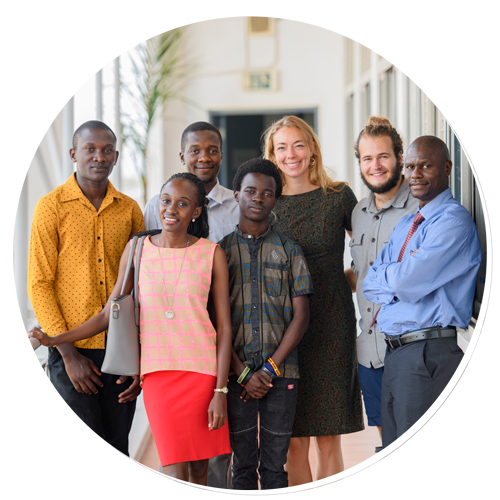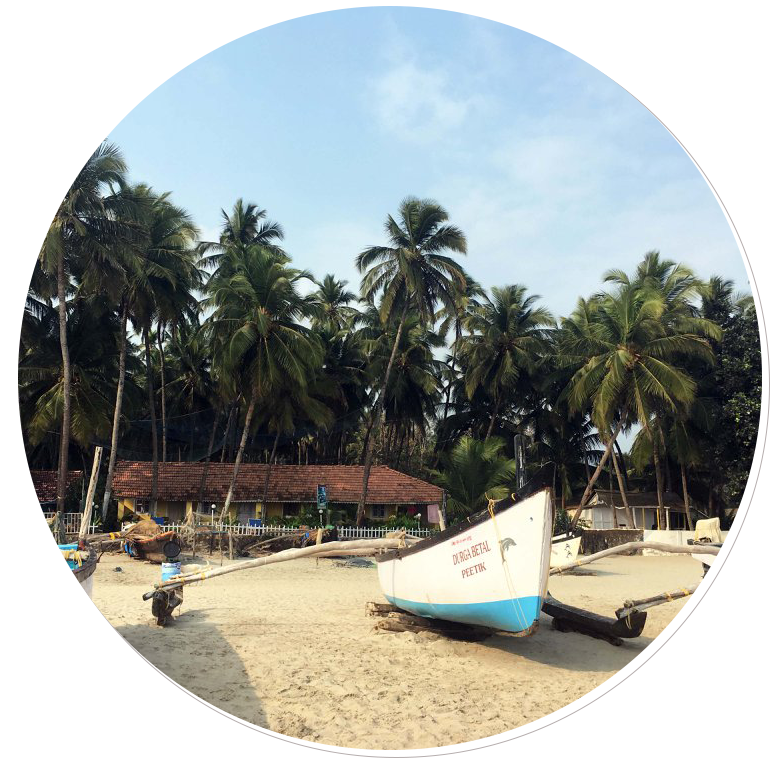Global Engagement Grants
Our Global Engagement Grants offer funding for innovative projects by faculty, researchers, and students that blend work in research, education, and capacity-building.
Through these grants, CGHSR supports creative, novel approaches to global engagement through funding designed to advance sustainable, equitable health globally. Global Engagement Grants also provide an opportunity to collaborate around specific CGHSR focus areas and with others who share our priorities. Review past Global Engagement Grant recipients' work here.
Open Call Global Engagement Grants
Open Call Global Engagement Grants are available to UMN faculty, staff, and graduate students to support small projects or pilot efforts. These grants, ranging from $1,500 to $15,000, support work including pilot projects, travel, or capacity-building activities such as educational programs, curriculum development, or technical training.

Discover How to Apply
Open Call Global Engagement Grants are designed to offer funding for innovative projects that do not necessarily fall into a single category of research, education, or capacity-building.
Eligibility
Current faculty, staff, master's, medical, and doctoral degree students from academic units throughout the University of Minnesota system are eligible.
Selection Criteria
Proposals will be evaluated on the basis of the following criteria:
- Interdisciplinary nature of the proposed project or research plan and the ways in which it contributes to addressing the established global health need
- Evidence of partnership with community collaborators and/or organizations
- Intellectual merit, cohesiveness, and feasibility of the project proposal or research plan and the clarity with which it is conveyed to a non-specialist
- Soundness of the budget request
- For graduate student applicants: Academic record and strength of faculty advisor letter of support
- Alignment with CGHSR values of social responsibility, which include:
- Mutual partnership and/or bidirectionality;
- Equity: Institutions or individuals involved in the project benefit equitably and scientific outputs recognize contributions from international partners;
- Projects have a path to long-term sustainability;
- Activities include interprofessional engagement;
- Activities are relevant, important and impactful as defined by international partners.
- CGHSR will give additional consideration to proposals that align with existing and emerging portfolios, including Global Women’s Health, Human Health and Migration, Global Health Ethics, and Climate Change/Environmental Health.
Application Process
The application for 2023-2024 Global Engagement Grants is now closed. The information below details the process from 2023 for reference.
Applications for Global Engagement Grants will be accepted until October 30, 2023, at 11:59pm CDT. Grant applications must be submitted through the Google form application. See a preview of the full application here.
Please review the Request for Proposals (RFP) document for details on application requirements.
Key Dates:
- Applications due: October 30, 2023, at 11:59 CDT
- Awardee(s) announced: December 2023
- Funding available: January 1, 2024
Questions
All questions related to the application process, requirements, or eligibility should be directed to Sophie Watson at [email protected].
Global Engagement Grant Spotlight
Learn about our 2023–2024 Global Engagement Grant Recipients
We were grateful to receive a number of robust proposals for our 2024 Global Engagement Grants program, and were impressed by the quality and strength of the partnerships and projects proposed. This year’s projects covered a wide array of subject areas, from factors affecting children’s mental health in Panama to capacity building in Vietnam that aims to increase occupational safety.
Learn more about our 2023-24 Global Engagement Grant Recipients

Photo courtesy of Nida Sajid
2024 Global Engagement Grants
2024 Global Engagement Grants
Ecuador: Social, Environmental and Cultural Determinants of Health
- Program Leader: Laura Dammer Hess, MLS | Director, UMN Center for Health Interprofessional Programs
Resilience In Adversity: A Study Of Risk And Protective Factors Affecting The Mental Health And Academic Motivation Of Children And Youth In Informal Settlements In Panama
- PI: Ana Mireya Díaz, MA, MS | PhD student in the Department of Family Social Science / MSW student in the School of Social Work, UMN College of Education and Human Development
- Co-I: Diana Xie, PhDc | Urban Geography at the Autonomous University of Barcelona
Capacity Building in Occupational Safety and Health in Vietnam
- PI: Trân B. Huỳnh, MPH, PhD, CIH | Associate Professor in the Division of Environmental Health Sciences, UMN School of Public Health
- Co-I: Hien T.T. Ngo, MSc, PhD | Faculty member in the Faculty of Health Sciences at Thang Long University, Hanoi, Vietnam; Assistant Secretary of the Workplace Health Without Borders – US Branch
A Multimethod Study to Refine Family Nurse Practitioner Curriculum and Scope of Practice for the Advanced Practice Nursing Role Within the Primary Health Care System and Context of Liberia, West Africa
- PI: Dorcas Kunkel DNP, RN/PHN, CNE, CPHIMS | Clinical Associate Professor, Global Health Faculty Scholar 2023-24, UMN School of Nursing
- Co-I: Cecelia Kpangbala Flomo MPH, MPH-ICHD, RN, BSN, FWAPCNM, PHF | Registrar/Executive Secretary, Liberian Board for Nursing and Midwifery, Republic of Liberia, West Africa
Anishinaabemowin: A Global Indigenous Pharmacist Sharing Circle
- PI: Laura Palombi, PharmD, MPH, MAT | Associate Professor in the Department of Pharmacy Practice and Pharmaceutical Sciences, UMN College of Pharmacy
- Co-I: Faye McMillan AM, DHlthSc, MIndH, MSCL, GCWiradjuriLCH, GCIndG, GCE | Deputy National Rural Health Commissioner for First Nations and Allied Health; Professor of Indigenous Health at the University of Technology Sydney; Registered Pharmacist (Community)
Research Mentorship Program for Rwandan Junior Faculty Surgeons
- PI: Jennifer Rickard, MD, MPH | Associate Professor of Surgery, UMN Medical School
- PI: Christophe Mpirimbanyi | Surgeon, Kibagabaga Hospital, Kigali, Rwanda
Climate Change and Malaria Symposium
- PI: Kelly M. Searle, ScM PhD | Assistant Professor in the Division of Epidemiology and Community Health, UMN School of Public Health
- Co-I: Baltazar Candrinho, MD | Director of the National Malaria Control Program in Mozambique; Chair of the Initiative of Malaria Elimination in Mozambique, South Africa and Swaziland (MOSASWA)
2023 Global Engagement Grants
Open Call Global Engagement Grant Recipients
Vaginal/neovaginal microbiome alterations, gender affirmation therapy and implications for sexually transmitted infections in Thai transgender women
- PI: M. Kumi Smith, PhD, MPIA, UMN School of Public Health
- Co-PI: Amaraporn Rerkasem, MD, Chiang Mai University Research Institute for Health Sciences
Assessment of sound waves from liver vessels via artificial intelligence to detect liver cancer in resource-limited settings
- PI: Jose Debes, MD, PhD, MS, UMN Medical School
- Co-PI: Ju Sun, PhD, UMN College of Science and Engineering
Creation of the First Point-of-Care Ultrasound Fellowship in Ecuador
- PI: Andrea Dreyfuss, MD, MPH, UMN Medical School & Ultrasound Fellowship Director, Department of Emergency Medicine, Hennepin Hospital
A One health initiative to combat rodent infestation threats to public health and well-being of vulnerable communities in Latin America
- PI: Claudia Muñoz-Zanzi, DVM, PhD, UMN School of Public Health
- Co-PI: Piedad Agudelo Florez, Universidad CES, Medellín
Evaluating adaptation, acceptability, and sustainability of an online, trauma treatment certificate program for building the capacity of Malaysian professionals working with refugees.
- PI: Patricia Shannon, PhD, LP, UMN School of Social Work, College of Education and Human Development
- Co-PI: Chris Mehus, Ph.D., LMFT, UMN College of Education and Human Development
Ghana Telehealth Outreach and Technical Assistance Program (GHTOTAP): A pilot project
- PI: Jessica Simacek, PhD, UMN Masonic Institute for the Developing Brain, College of Education and Human Development
- Co-PI: Emmanuel Bonney, MPhil, PhD, UMN College of Education and Human Development
- Project Team: Jed Elison, PhD, UMN College of Education and Human Development; Anita Randolph, PhD, UMN Medical School
An enhanced education program improves postnatal maternal knowledge of neonatal jaundice in Jinja, Uganda
- PI: Jameel Winter, MD, UMN Medical School
- Co-PI: Businge Alinaitwe, BSN, Sanyu Africa Research Institute, Mbale Regional Referral Hospital
NRC-RIM Community Engagement Grants
Afghan Healthcare Navigation
- Organization: Afghan Cultural Society
- Project Lead: Atefa Tavasoli, Fellow of Neurosurgery, UMN Medical School
- Project Manager: Amina Baha, Operations Director & Founder, Afghan Cultural Society
- Partners: UMN School of Social Work; Advocates for Human Rights; Community-University Health Care Center (CUHCC) Clinic
2022 Global Engagement Grants
Open Call Global Engagement Grant Recipients
Social and Ecological Impact of Waste Management
- PI: Nida Sajid, PhD, Asian and Middle Eastern Studies, College of Liberal Arts
- Co-PI: Rishikesh Narayan, PhD, Indian Institute of Technology (IIT) Goa
- Project Team: Sudhir Krishna, PhD, MBBS, IIT Goa; Sabiha Hashami, PhD, Indian Institute of IIT Goa; Sarah Binte Ali, PhD, IIT Goa
Maximizing collaborative roles for allopathic, traditional and faith healers for treating women with breast cancer
- PI: Beth Virnig, PhD, MPH, UMN School of Public Health
- Project Team: Shalini Kulasingam, PhD, UMN School of Public Health; Adwoa Bemah Boamah Mensah, Ph.D., MPhil, FGCNM, FWACON, RN, Kwame Nkrumah University of Science and Technology; John Amuasi, MBChB. MS. MPH. PhD., Kwame Nkrumah University of Science and Technology
Capacity building - Vitreoretinal surgery in Uganda
- PI: Dara Koozekanani, MD, PhD, UMN Medical School
- Co-PI: Erik van Kuijk, MD, PhD, UMN Medical School
Global Women’s Health Engagement Grant Recipients
Determining Efficacy of a Maternal and Neonatal Simulation and Debriefing Intervention to Improve Clinical Competence of Diverse Students at the University of Nairobi
- PI: Cynthia Sherraden Bradley, PhD, RN, CNE, CHSE, UMN School of Nursing
- Project Team: Miriam C. A. Wagoro, RN, PhD, University of Nairobi; Blasio Omuga, MBCHB, MMED, University of Nairobi; Joyce Jebet, RCHN, BScN, MSc, PhD, University of Nairobi; Lilian Omondi, BScN, MScN, PhD, University of Nairobi
Use of simulation for global medical education in obstetrics and cesarean delivery in a resource-limited rural setting: a partnership between University of Global Health Equity School of Medicine, Rwanda and University of Minnesota
- PI: Rebecca Petersen, MD, UMN Medical School
- Project Team: Rahel Ghebre, MD, MPH, UMN Medical School; Abebe Bekele, MD, University of Global Health Equity, Rwanda